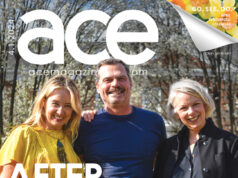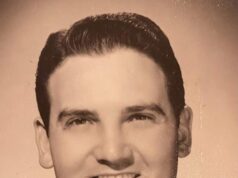Atop the wedding cake stood two tuxedoed miniatures. Their life-size counterparts were not married today. They were to exchange vows and jewelry just like those at any other wedding, but when those in attendance were drilled with the obligatory, “. . .speak now or forever hold your peace,” the very last pew grumbled. Someone objected.
For gay and lesbian couples the freedom to marry does not exist. For them, that someone in the back of the church is the President of the United States, Congress, and most states, including Kentucky.
One state, however, is actively pursuing pro-same-sex marriage legislation. This fall on the ballot in Hawaii will be an opportunity for same-sex marriage to become legally recognized. Under the “full faith and credit” clause of the Constitution, same-sex marriages performed in Hawaii would have to be honored by all other states-if the law is passed. What Kentucky has done, though, in its most recent General Assembly, is to issue a pre-emptive strike that no such marriage be recognized here.
Same-sex marriages in Kentucky, then, are ceremonial o

Churches perform ceremonial marriage. Religions that have endorsed or held same-sex marriage ceremonies include denominations as diverse as Reform Judaism, Buddhist, Quaker, and the Reformed Catholic Church.
Some churches require the couples to act as ministers and conduct the ceremony themselves. The Episcopal Church, for instance, upholds the union of any two partners who are willing to make a life-long commitment, yet will not endorse or bless their sexual orientation. The ceremonies aim only to celebrate and affirm the initiation of a faithful relationship.
In contrast are the Unitarian Universalists. For the past 26 years they have not only performed same-sex marriage, but have also supported legal recognition. They recognize that the debate about extending legally recognized marriage to same-sex couples has focused on the objections of certain religious communities. Within the religious community themselves, the Unitarian Universalists’ support for same-sex marriage and other facets of gay, lesbian, bisexual, and transgender rights is equally strategic.
Kelly M. Flood, minister of the Unitarian Universalist Church, 3564 Clays Mill Road, has been performing same-sex marriage ceremonies locally for the past seven years. She receives just as many requests for same-sex unions as she does male-female marriage. “The typical ceremony at its heart is the same,” she explained, “Because what all couples want is a public affirmation of the very private, and yet powerful love, that exists between them.”
Unitarian Universalist ministers are heavily involved in the ceremony.
“Because it’s not legally sanctioned,” said Flood, “The ceremony is often the only thing they have. My role is to ensure a sacredness. Unitarian Universalist ministers also work with couples to create a ceremony that speaks to who they are.”
Church weddings-or commitment ceremonies, as they are commonly called-for gay and lesbian couples are a recent phenomenon in America. Actual ceremonies incorporate varying degrees of traditional wedding archetypes. They can be tailored to reflect any religious or philosophical view. For many, the desired venue is church. But this is a problem for gay and lesbian couples, who even if they have been very religious, are often abandoned by their churches. Often a remote religiously-neutral site is selected.
“Asignificant challenge for gay couples,” explained Flood, “Is how scary it is to be that public when everything in our culture says, ‘Keep it underground, It’s fine if you don’t talk about it.'” In other words, don’t ask, don’t tell.
This is particularly challenging when hiring vendors. Photographers and caterers can complicate any wedding. For gay and lesbian couples the challenge is compounded by constantly having to come out to strangers. Many prevent awkward or unpleasant situations by screening potential vendors, asking ahead of time if they are comfortable with same-sex ceremonies.
Yet another task for same-sex couples is deciding what to wear. Manner of dress can involve any combination of traditional gowns, less formal suits, matching outfits, and tuxedos. No rigid standards exist. Some couples have found that dressing more traditionally helps to distinguish them from their guests. Others prefer to simply dress as they normally would for a formal event.
For some same-sex couples the term “wedding” is often rejected along with the tux and the gown. Terms like “commitment ceremony” or “union” are used instead. “Wedding” can invoke (sometimes negatively) all of the traditional imagery and precepts that accompany legal marriage.
While the refusal of a single term and its heavy social baggage may seem stubborn to some, same sex couples are legally resisting settling for symbolic union only. By choosing not to participate in a “wedding” they may be preserving hope that someday they will be legally married.







